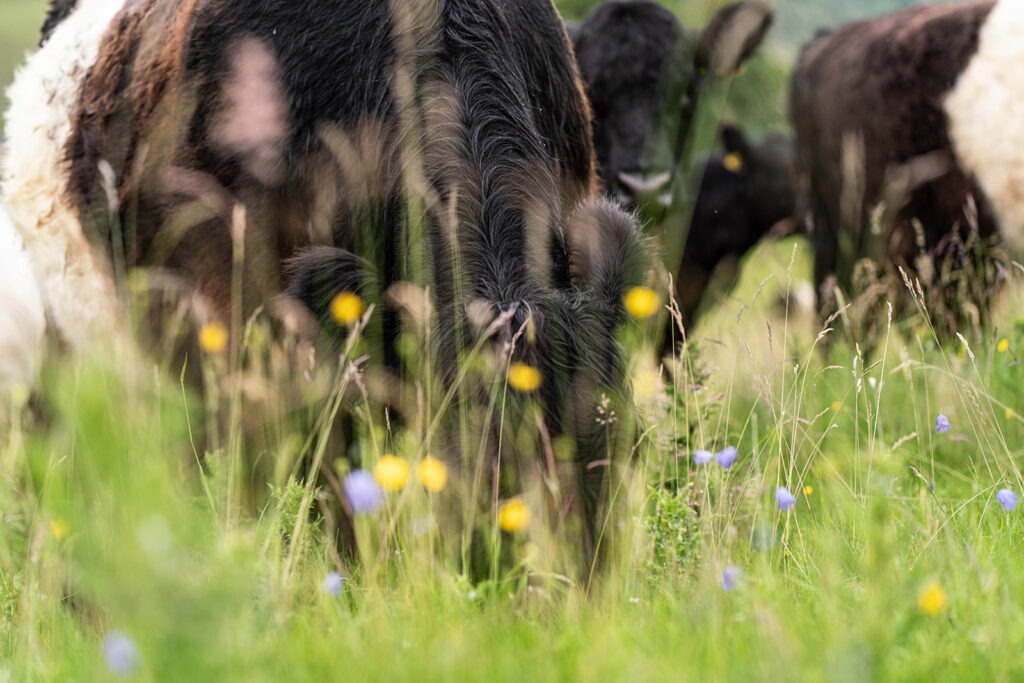“Grazing animals on 100% pasture brings positive impacts for biodiversity and carbon, human health and wellbeing, and animal health and welfare.” [Pasture for Life ]
THE IMPACT OF LIVESTOCK ON CLIMATE CHANGE:
One of the most contentious questions about the climate is the impact of agriculture: Is animal agriculture the biggest contributor to climate change?
Especially when it comes to the impact of livestock – and it has indeed clear that there is a huge amount of lobbying going on, with Big Meat and its battle plans for COP28 unfolding at the end of the year.
But beyond the hype and campaigning, whilst the contribution of the meat industry to global warming is excessive, in fact fossil fuels are the Number 1 climate change cause, not animals:
Animal agriculture is a significant contributor to greenhouse gas emissions and climate change, but the extent to which it contributes to global emissions depends on how researchers and studies define different economic sectors, and whether they incorporate things like farming equipment and food exports in the assessment of animal impact... Christina Cilento, an associate policy fellow at the Center for Climate and Energy Solutions, said most sources list agriculture as the No. 2 contributor to global greenhouse gas emissions – with fossil fuels taking the No. 1 spot.
HOW TO LESSEN THE IMPACT OF LIVESTOCK ON CLIMATE CHANGE:
Consequently, livestock farmers are feeling unfairly hard-pressed: ‘We’re in danger of becoming the climate scapegoats for fossil fuel interests’ – with this view from Ireland:
The issue then becomes for farmers not only who to trust but whether they will get the credit if they do improve and make the cuts. My own farm has cut emissions by approximately 25% over the last three years, with aims to cut further without impacting yield. Unfortunately, right now none of those improvements have earned me an extra cent, with substantial costs in some areas.
So, many livestock farmers are making efforts to reduce the impact of what they do – with one of the highest contributors, beef farmers, showing how they can reduce their carbon footprint. Even further afield, in India there are efforts to take animal farming from carbon culprit to climate champions. Whilst research into the gut microbiome of cows and high-tech farms, for example, is demonstrating ways to reduce emissions from livestock farming.
Meanwhile, closer to home, traditional grazing practices are helping to bring back traditional species in South Hams – aided by the Devon-based group Cows in Clover who are reducing the impact of livestock at the same time as promoting animal-based farming as actually good for the environment.
Finally, here’s the view from Pasture for Life, who also champion the ‘restorative power of grazing animals on pasture’:
Grazing animals on 100% pasture brings positive impacts for biodiversity and carbon, human health and wellbeing, and animal health and welfare. Pasture for Life works on the ground, every day, to restore ecosystems, implement positive change in our food and farming systems, and demonstrate the benefits of 100% pasture fed.
And this is the opening of a piece published this week by their research officer Charlotte Wheeler on Fossil fuels and Farming: Livestock’s role in a low-input future:

When envisioning a farming system that is fit for purpose for the future we tend to work within existing paradigms, rather than more objectively considering the kinds of radical change that might actually be necessary to stay within planetary boundaries. The dominant paradigm for much of the 20th century has been centred around the concept of “productivity”, aiming for maximum yield and output. With growing recognition of climate change, this paradigm has been joined by one valorising “efficiency”; this value system manifests itself in strategies that aim to maximise productivity, but facilitate a trajectory towards net zero. However, working within existing paradigms limits the kinds of solutions and strategies we consider viable. Instead, we should critically examine whether these paradigms are a fit foundation to build the food system of the future off of in the first place.
…